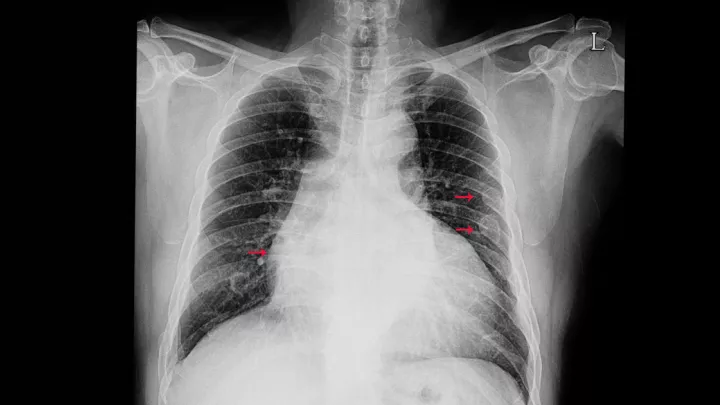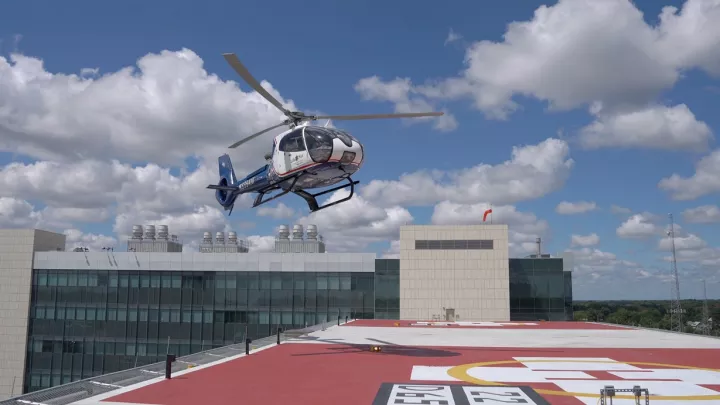I think I broke my rib. Now what?

Everyone has 12 pairs of ribs wrapped around their chest to protect vital organs. Several muscle layers connect the pairs of ribs. When one or more ribs are fractured or broken, the injury can be pretty painful.
Severity can vary depending on what caused the rib injury. Hairline fractures versus more complex fractures require different treatments. Simple fractures may heal nicely by themselves, with recommended at-home precautions given by your doctor, while more severe rib fractures can damage nearby organs and require immediate medical attention.
Traumatic events like a car accident, a severe fall, or a contact sports injury can cause broken ribs due to blunt trauma. Even severe coughing can cause stress fractures, especially in those who are elderly or have osteoporosis.
Primary symptoms of a broken rib
If you think you've broken or fractured a rib, you should see a doctor for evaluation. Depending on your symptoms, a doctor may order an X-ray or CT scan. Symptoms of a broken rib include:
- Pain that worsens when breathing, coughing or moving around
- Shortness of breath or difficulty taking deep breaths
- Bruising or swelling around the ribs
- Clicking or popping at the site of the rib fractures
Seek medical attention immediately if a suspected rib injury is accompanied by:
- Fever
- Abdominal pain
- Increasing shortness of breath
- Trouble breathing deeply
- Cough producing mucus or blood
- Unusual dizziness or weakness
If you're still in pain weeks later after visiting a doctor
According to Zachary Bauman, DO, Nebraska Medicine trauma medical director, there are signs to look for that would indicate the need for medical attention. Seek out additional help if you're experiencing "ongoing pain that doesn't seem to be improving, ongoing shortness of breath with activities you didn't previously have shortness of breath, or if you haven't returned to normal daily activities. Also included would be if you continue to feel clicking, popping or movement at the fracture site. These symptoms don't have to be continuous; they can come and go, especially with different activities. Also, if you've received a diagnosis of slipping rib syndrome, we can surgically correct it."
As a nationally certified Level I trauma center, the Nebraska Medical Center provides the highest level of care for the most serious and life-threatening injuries for both children and adults.







